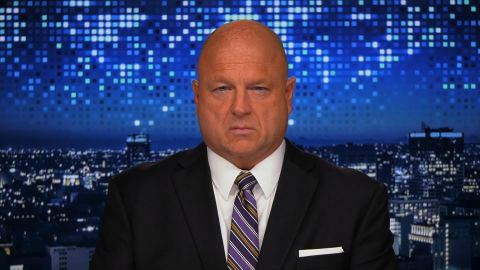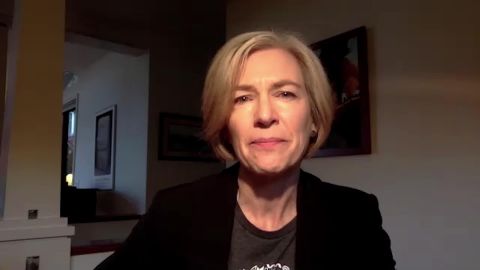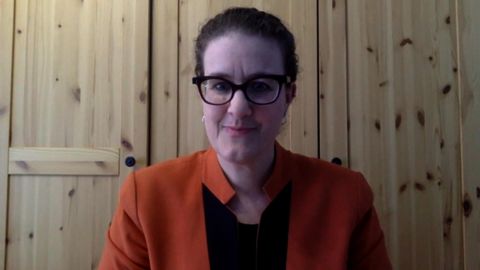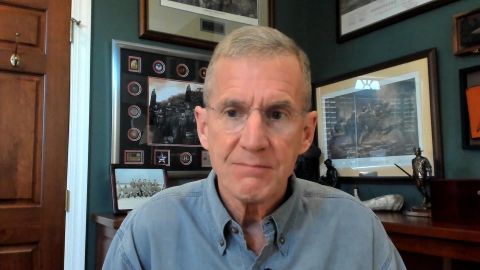Read Transcript EXPAND
BETH CAMERON, FORMER SENIOR DIRECTOR FOR GLOBAL HEALTH SECURITY, WHITE HOUSE NATIONAL SECURITY COUNCIL: The goal was really to ask questions at all levels of government. So, starting with White House decision makers, we were asking ourselves questions like, should we be looking at our personal protective equipment at varying stages during an epidemic or a pandemic? Does this call into question that we should be talking more with FEMA if we have a stronger need to respond in the United States or working more carefully with our global partners? So, basically, it’s now, I think, scanned in online. It was a public — it was a document that is unclassified but originally not for public distribution. And it outlines the questions that you would ask up the chain to senior leaders in the White House, but more importantly, the questions that you would ask departments and agencies. For example, do we have testing capability? For example, do we have enough supplies, ventilators and equipment? And so, it’s really a rubric not to tell exactly what decision to make but to allow everyone to ask the right questions constantly and consistently so that better decisions are made as quickly as possible, recognizing that time is really the one commodity that we don’t have during a pandemic.
CHRISTIANE AMANPOUR: So, to your — to the best of your knowledge, it wasn’t used, right? I mean, these are the very questions that are facing the United States and many countries right now, testing, PPE and all the other emergency, ventilators and all the things that people need to, you know, respond to this crisis, public health measures. Why was it not used to the best of your knowledge?
CAMERON: So, two quick things. One, the reason that it wasn’t used, I don’t really know the reason that it wasn’t used. It was reported that it hasn’t been used. And I think that it certainly would have been useful had it been used. But I think that it would have been most useful in the beginning phases of this crisis. So, in early to mid to late January as the crisis was turning into a public health emergency of international concern because that’s the point at which decision makers are really unclear about how to handle something, where time is of the essence and there might be a decision that takes two or three days where if it could be made more quickly or if a backup plan could be put in place, it could really save time. Now, at this point in the crisis, I think we really are where we are, which is that we have a massive pandemic around the world and certainly, in our own country where we don’t know who has the disease because we don’t have massive testing capabilities in place but where we really need that capability as quickly as possible, in addition to really getting the supply chain in order so that we have personal protective equipment, workers and hospital supplies ready to deal with what we have. So, definitely would have been useful then. I think now, you know, we are where we are
About This Episode EXPAND
Beth Cameron discusses the government pandemic playbook that she co-authored. Retired General Stanley McChrystal explains how the U.S. military can be used as a tool in these times. David Urban, senior advisor to the Trump 2020 campaign, weighs in on the president’s response to the crisis. Biochemist Dr. Jennifer Doudna explains how CRISPR can assist the battle against COVID-19.
LEARN MORE



